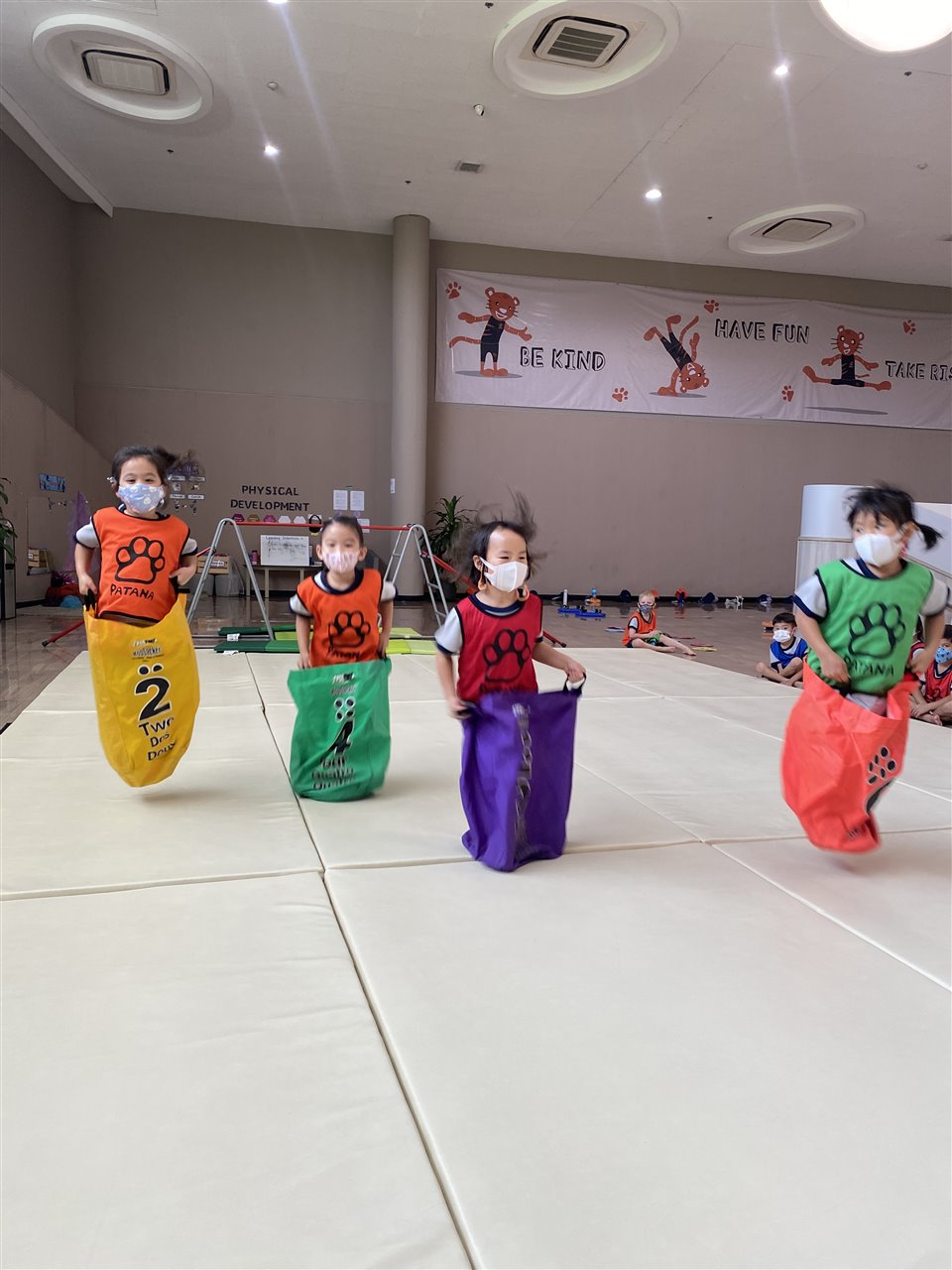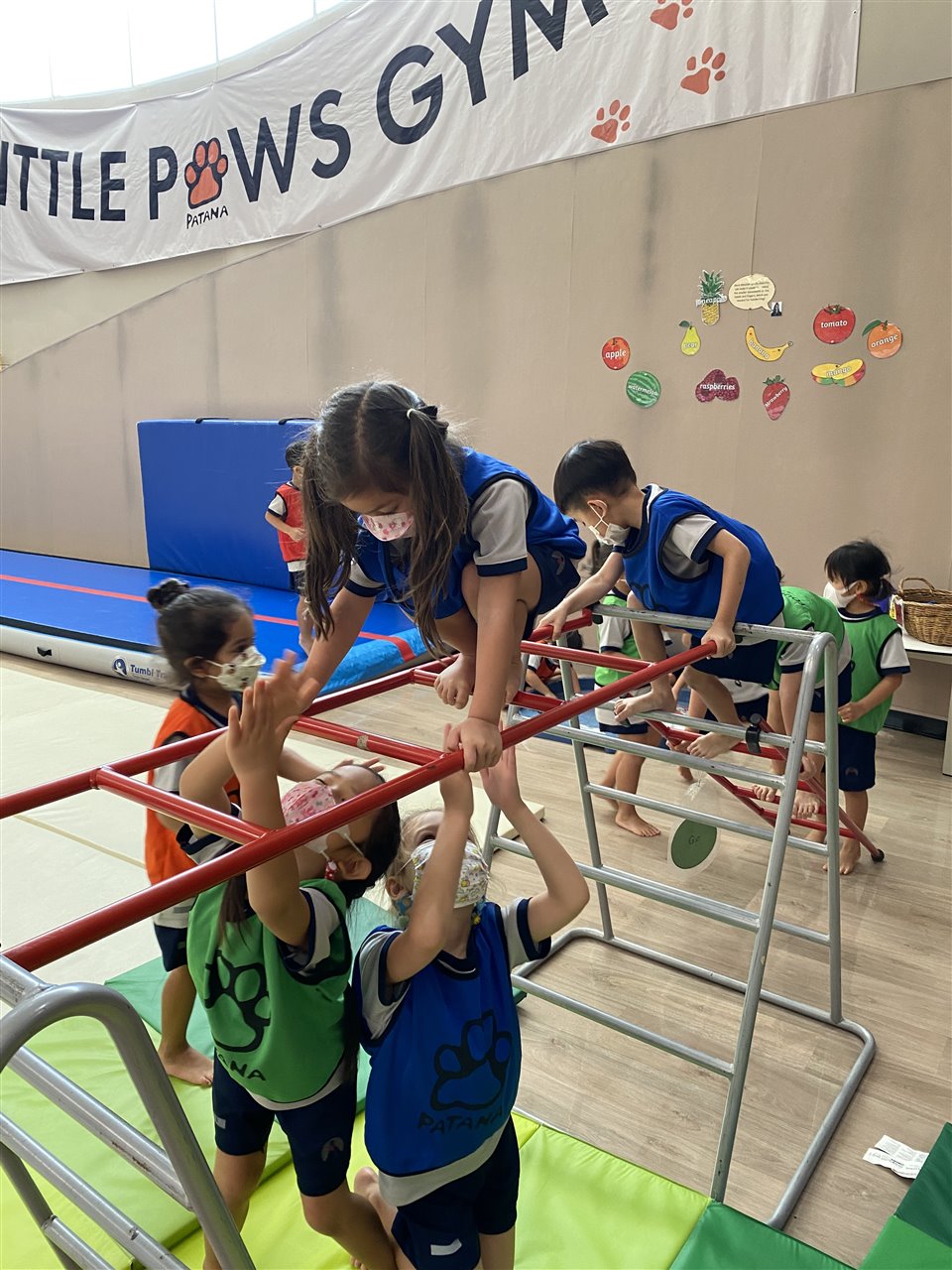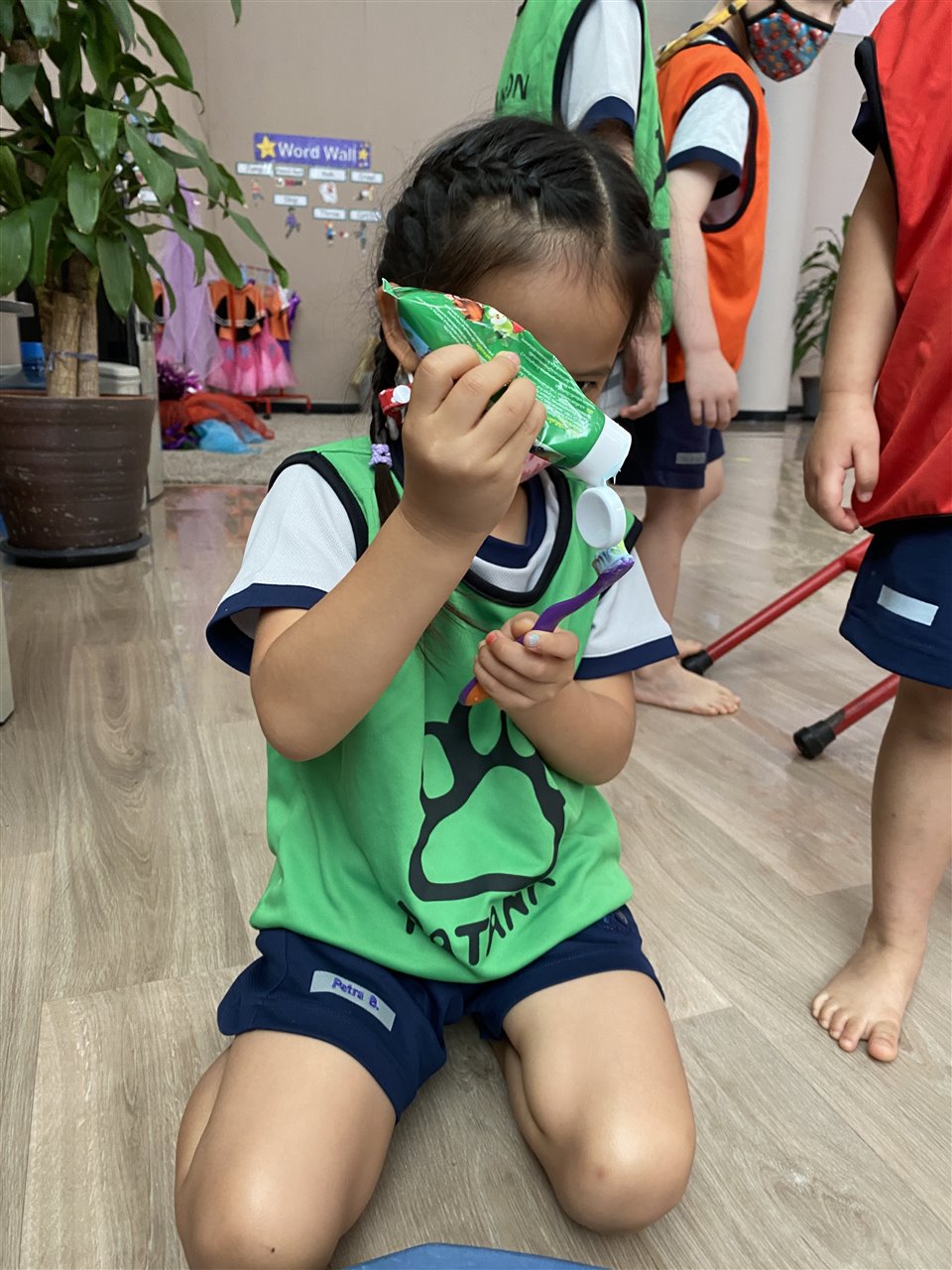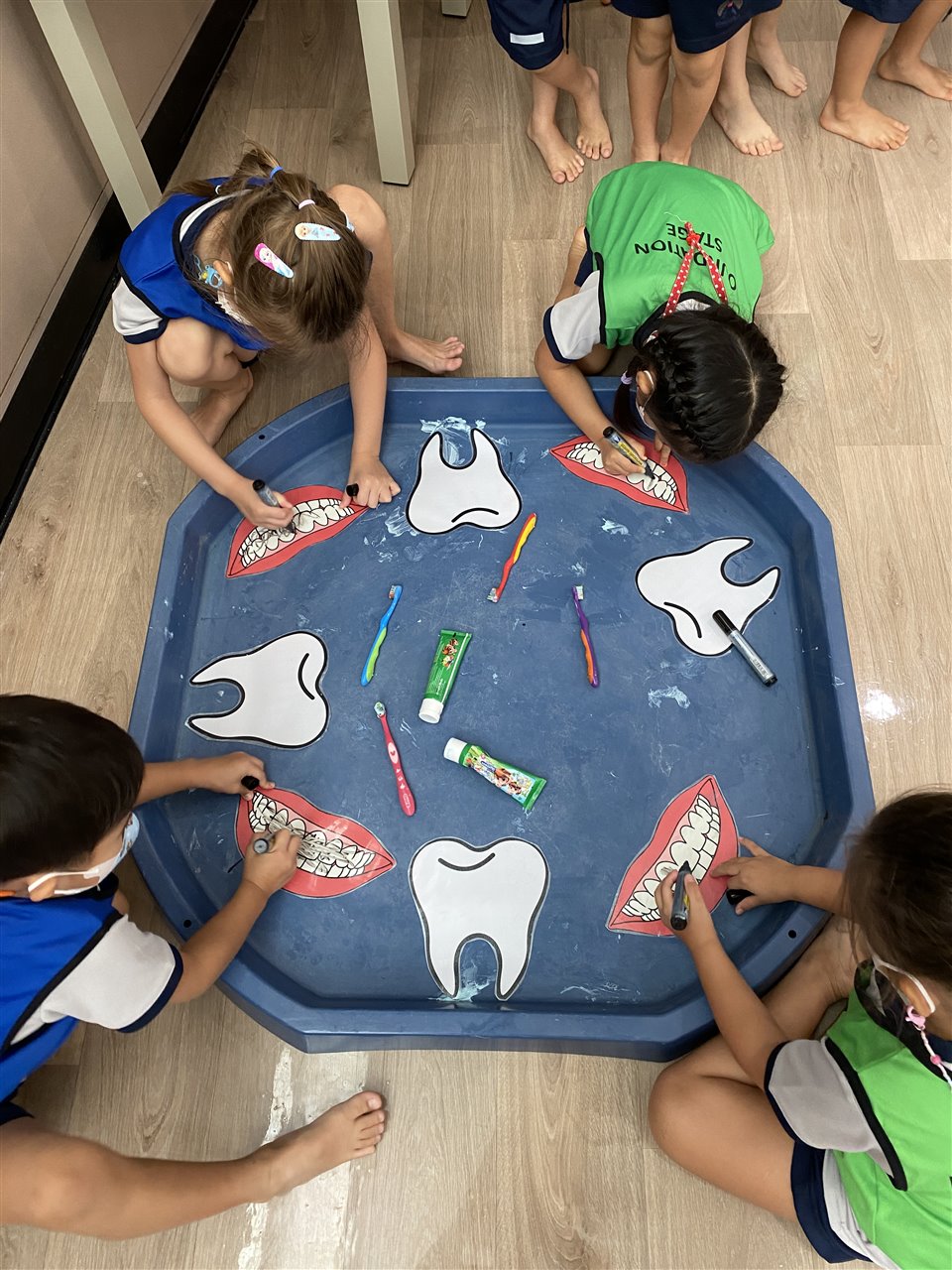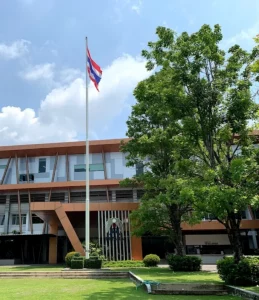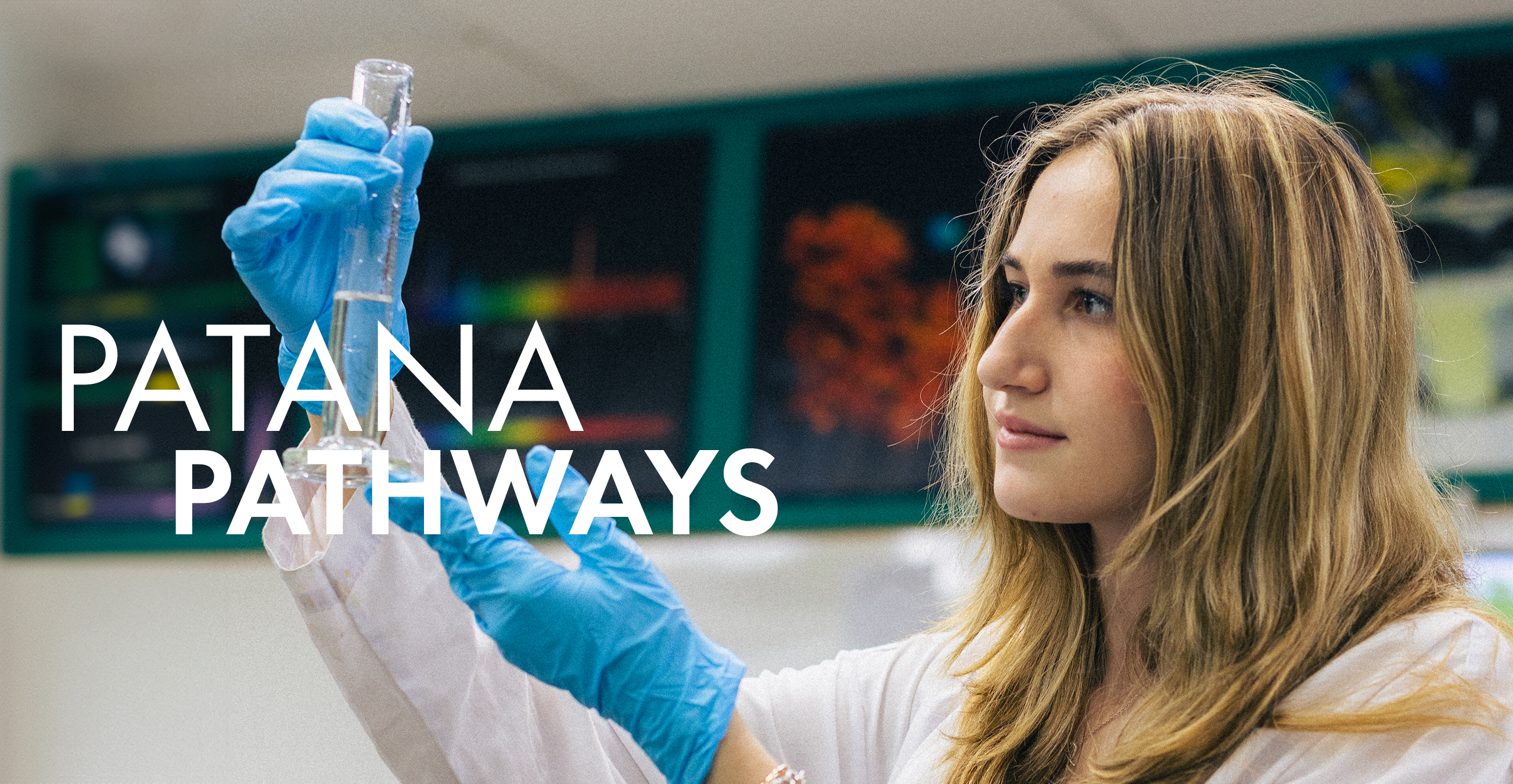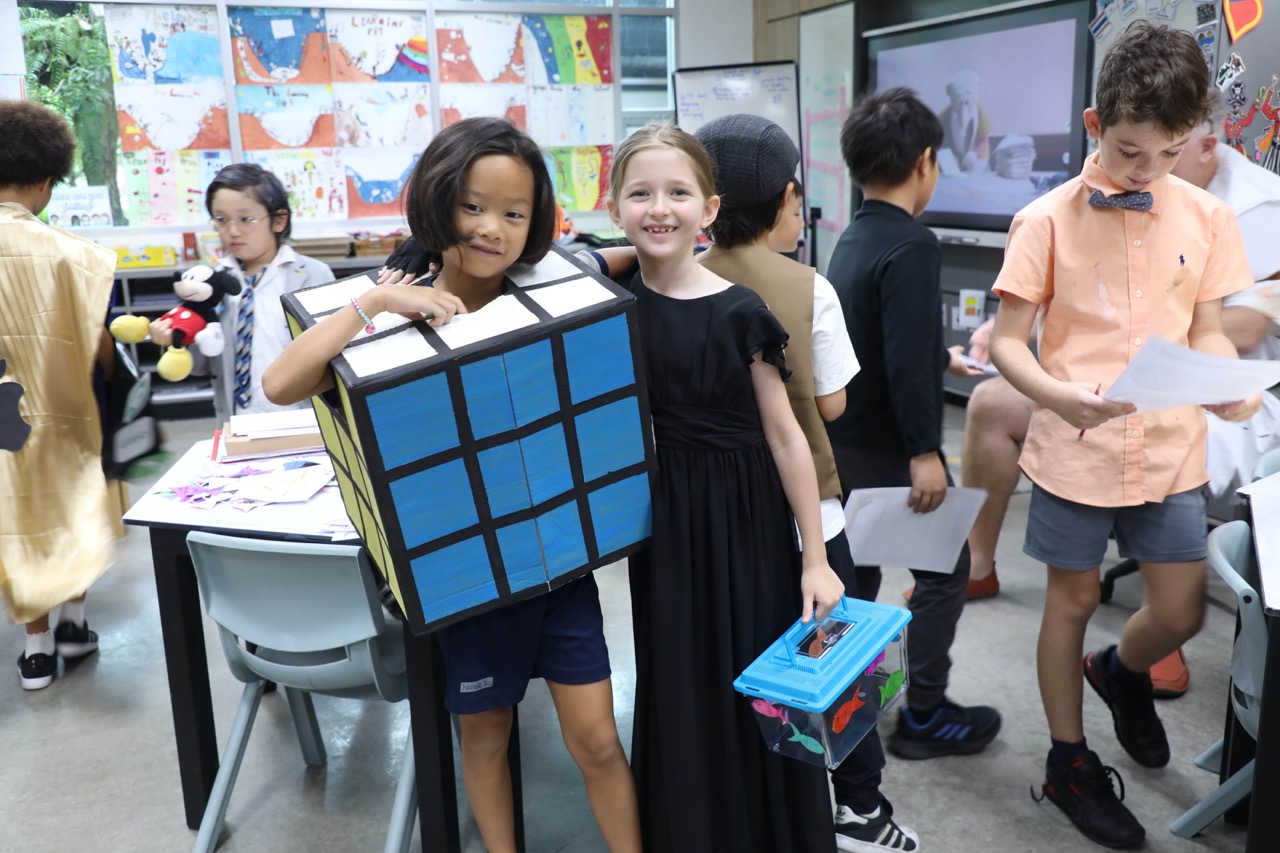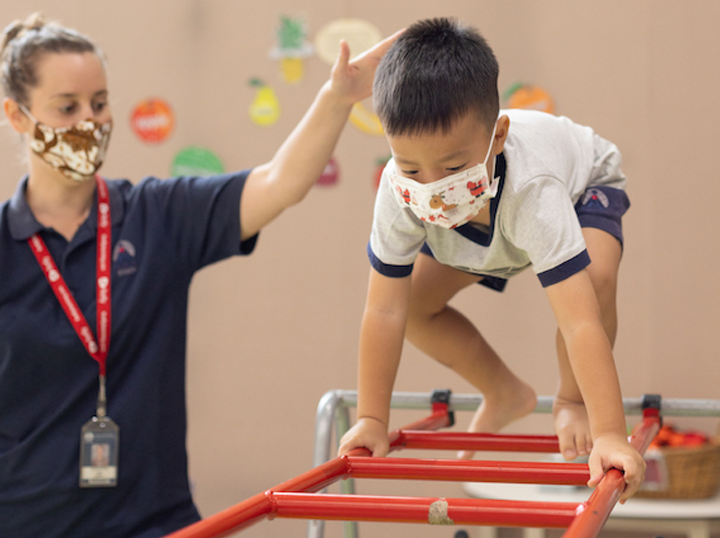
Physical Development in Foundation Stage
Physical development through movement and fun in the Foundation Stage!
Foundation Stage Physical Development Specialist, Gemma Price, recently presented key information to peers in other international schools. In the PE & Sport Collaborate and Connect Webinar Series from FOBISIA (the Federation of British International Schools in Asia), she presented the importance of physical development in Foundation Stage and what it looks like in the Bangkok Patana setting. Some important points from her presentation are summarised below.
Physical Literacy
Physical literacy is the motivation, confidence, physical competence, knowledge and understanding to value and take responsibility for engagement in physical activities for life. Foundation Stage is the most important time in young children’s lives where they need to be physically active, and take part in lots of physical play. This will help our younger children to develop a life long love for physical activity and sports as they move up through their school years.
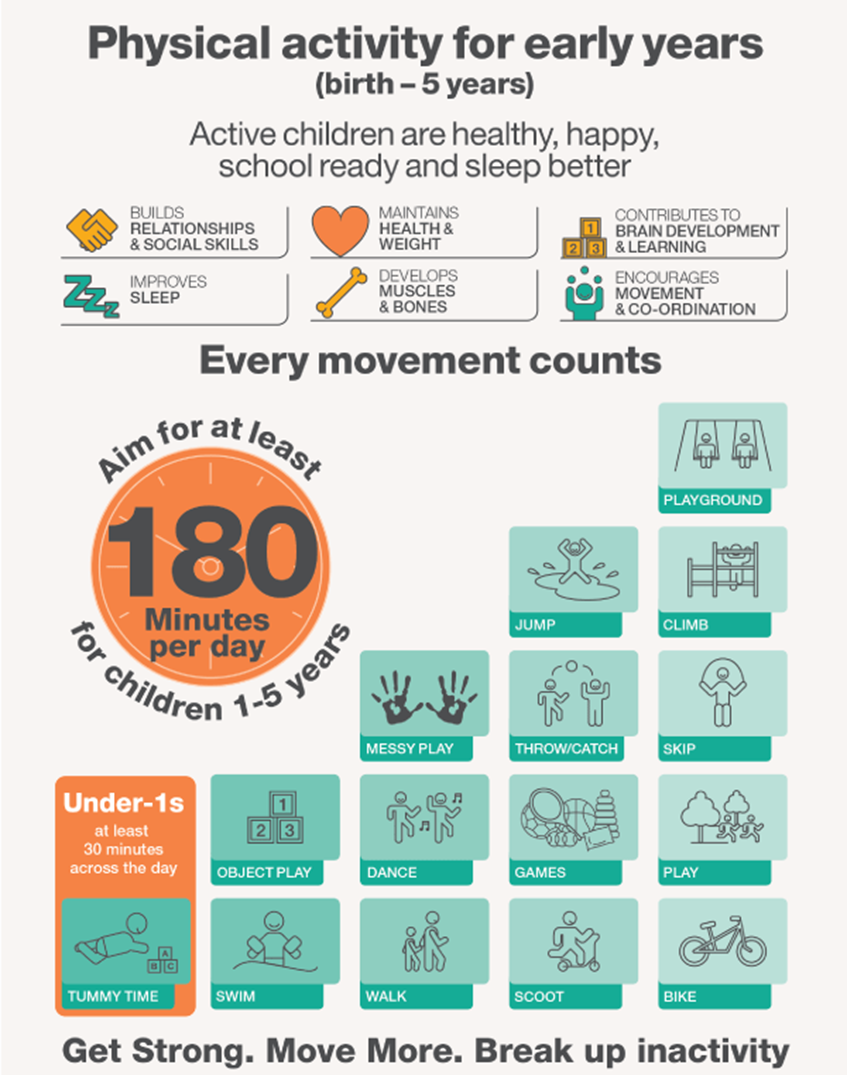
Did you know 3–4-year-olds should have 180 minutes of physical activity each day? 60 minutes of this should be moderate to vigorous activity. How are we achieving this at Bangkok Patana? The students are lucky to have a “Led Session” once per week, but apart from this, how do class teachers promote and explore physical development opportunities in their classes each day?
Physical Development as a Prime Area
Physical Development enhances the learning in other key prime areas such as Communication and Language and Personal, Social and Emotional Development. Children who are more physically active develop greater social skills and interactions with peers, and a positive sense of self. Through engaging play, our children can also develop their language and communication by taking to each other and through shared fun and interests.
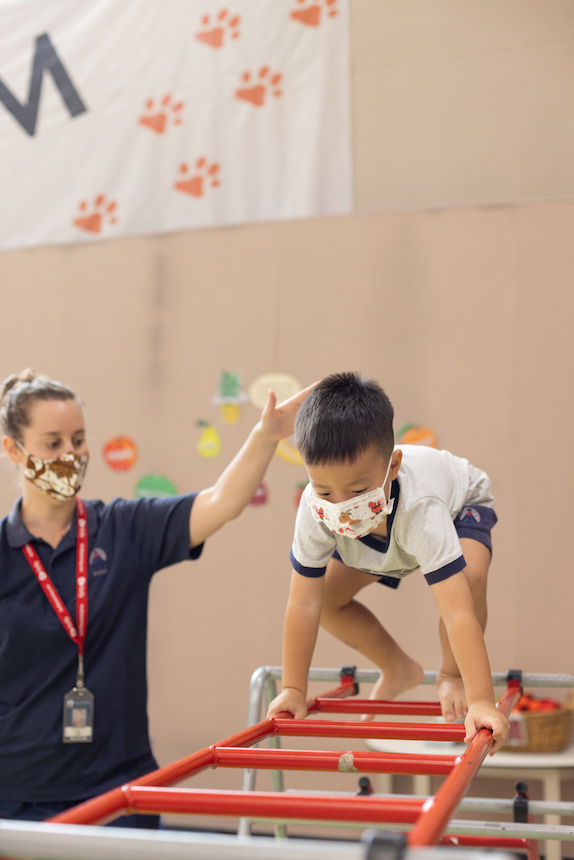
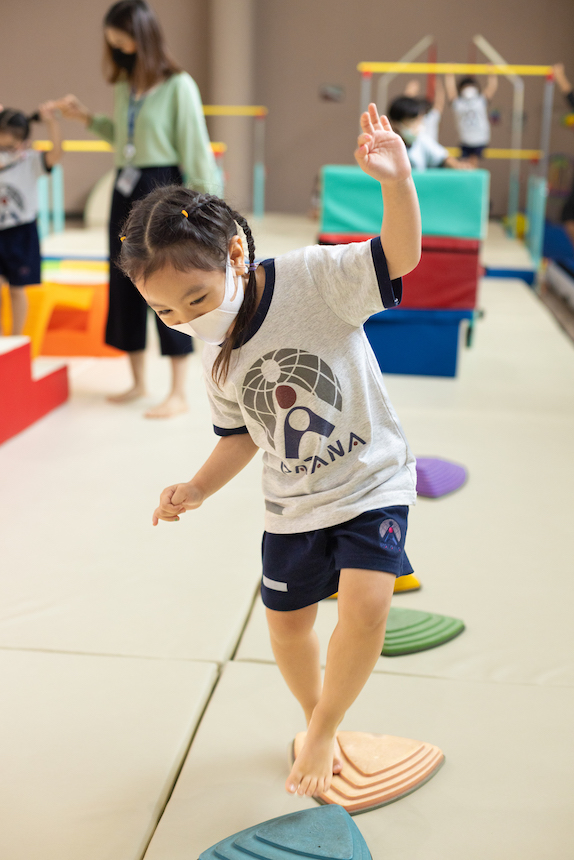
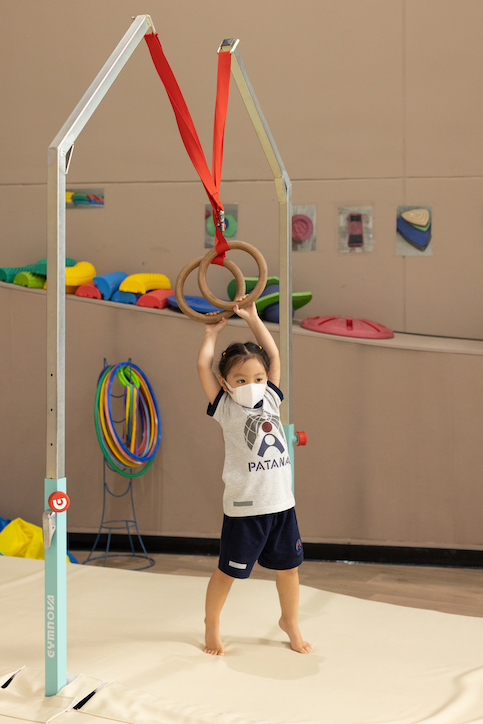
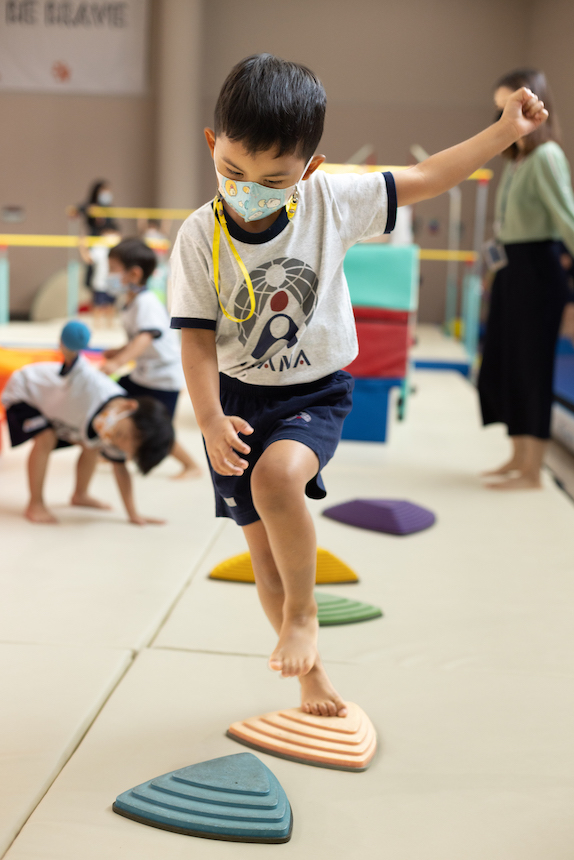
What guidance do we use at Bangkok Patana to inform, plan and assess learning?
The Birth to 5 Matters is an important document that we use in Foundation Stage. In this guidance you can find all the physical skills that the children explore. There are specific ranges however, each child does not fit into a specific range as all children are unique. The range and skills that children are working on will depend on the child’s needs and abilities.
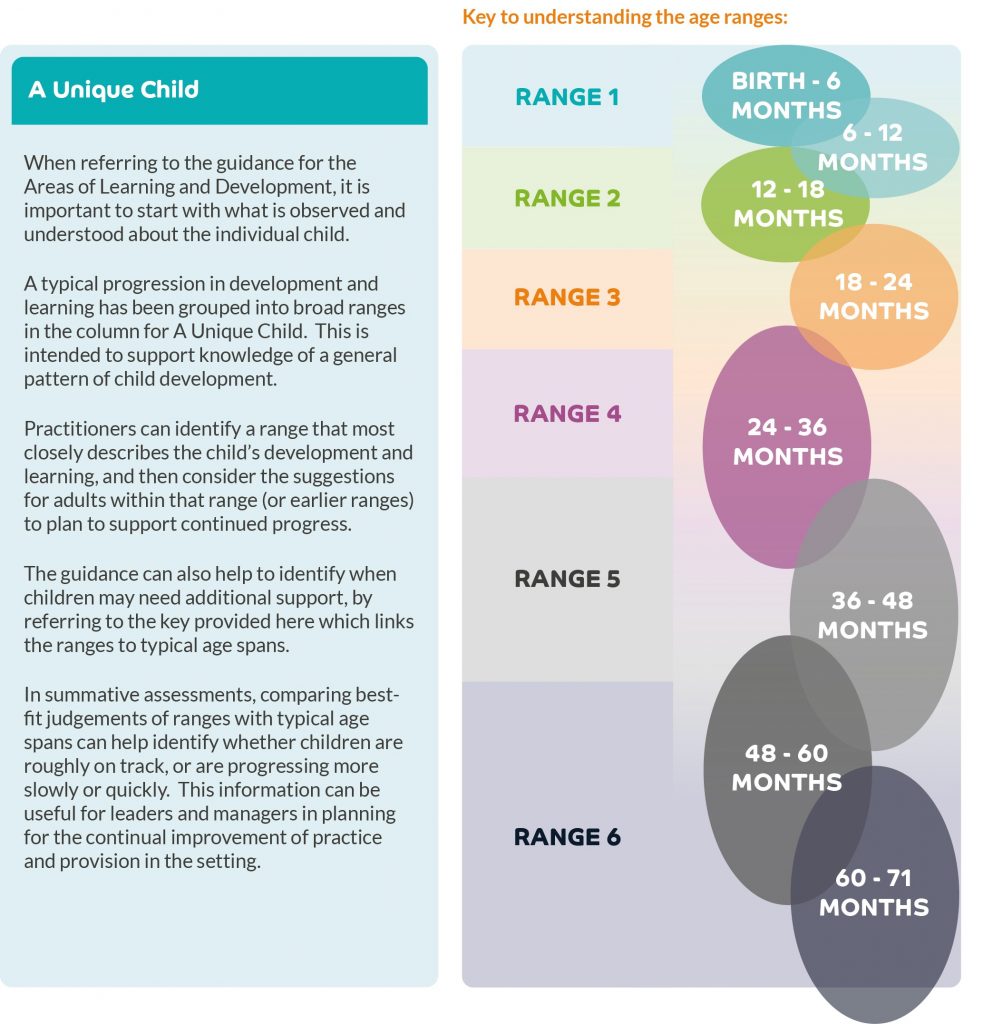
How do I plan a Physical Development lesson?
There are multiple things to consider when planning Physical Development lessons for the FS1 and FS2 children. Firstly, it is important to look at the Birth to 5 Matters statements and to carefully choose skills that the children may need to work on.
It is also important to consider our students’ interests and how we can incorporate these into the lessons. An example of this would be if a group of children love superheroes, can they be running, jumping, flying, hopping, skipping, crawling or climbing superheroes? Bringing in children’s interests develops effective engagement in the lessons.
Data is also an important factor to consider when planning a lesson. In conjunction with the class teachers, it is good to look at gaps and strengths in all the classes together, then plan lessons to close those gaps.
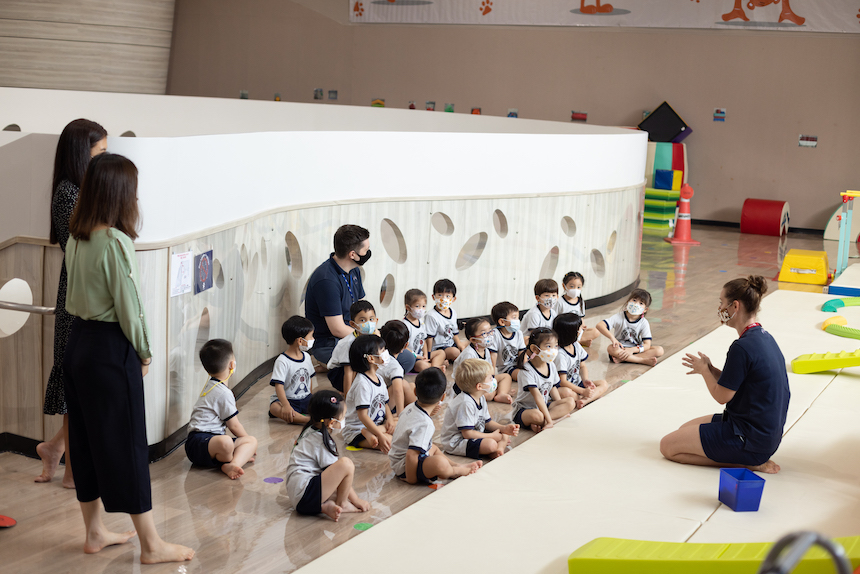
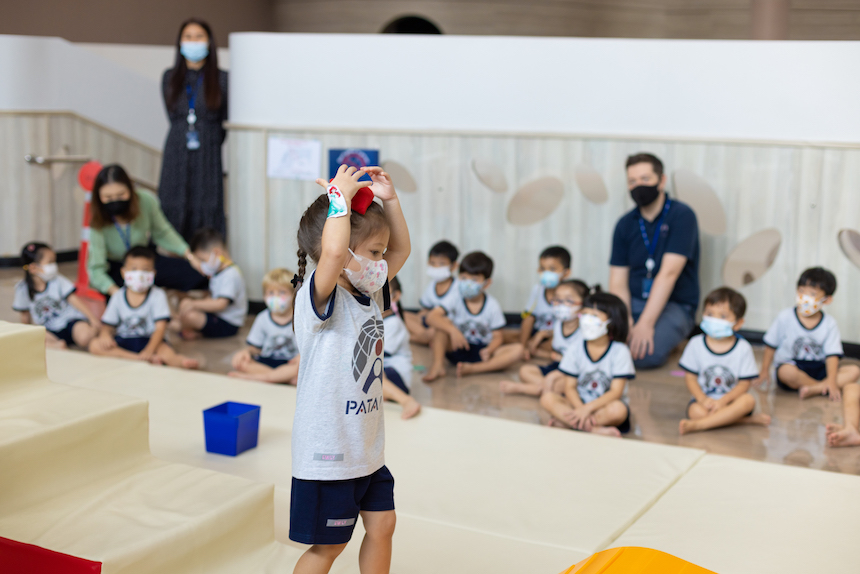
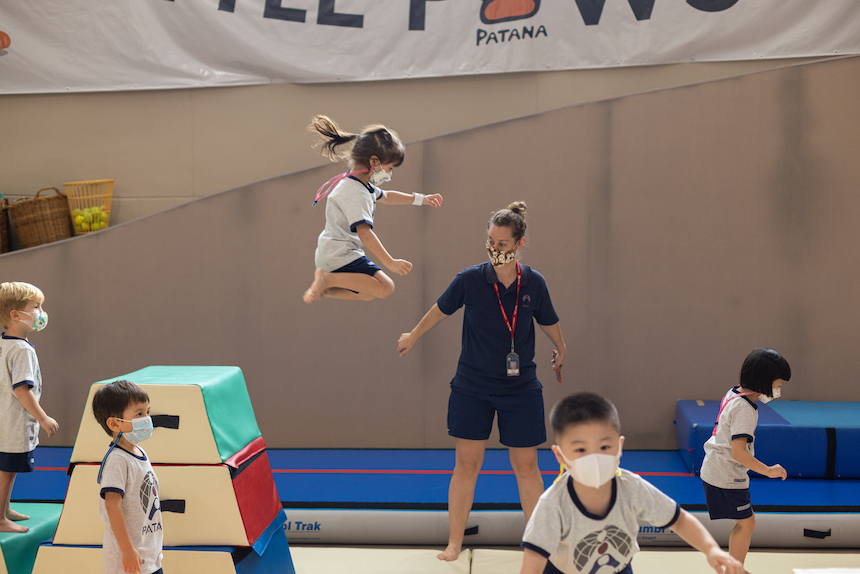
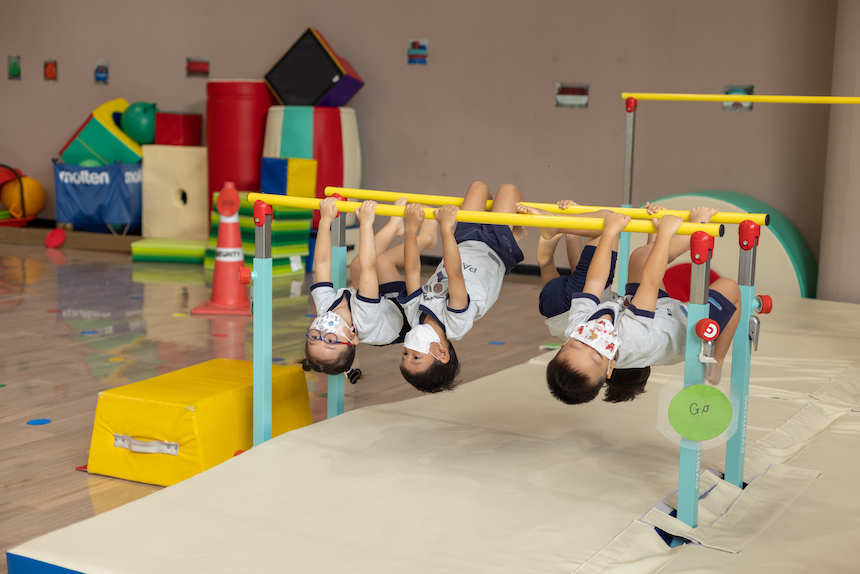


Led and Free Flow Sessions:
The children in Foundation Stage have two lessons per week with me as their specialist teacher. One of these lessons is a Led Session and the other is a Free Flow Session.
The Led Session:
Here we focus more on gross motor skill development. This is where students get to practice developing those big skills such as running, jumping, crawling and hopping. Engagement in our lessons is key. We move away from whole group learning; the students are given a choice and the opportunity to choose their play in these lessons. I find that when children have choice, they are still developing key physical skills and their interest and engagement levels are higher.
Every child is unique and it is important that we support the students who find learning these skills challenging. Myself and the class teaching assistants will work with these students to help them develop their physical skills and to feel a sense of achievement in their learning. Likewise, with the more skilled learner, we need to think about how they can be challenged in our lesson so they are continuing to be engaged and are learning new skills.
The Free Flow Session: During these sessions, there is a focus on developing the students’ fine motor skills by using the environment’s provisions and enhancements. Examples of fine motor activities include sorting toys using tongs, using playdough cutters and squeezing dough, solving puzzles, building with Lego and blocks, drawing with chalk or painting. Fine motor skills are demonstrated by students making small precise movements with their hands and fingers. We also talk about making our hands strong!
